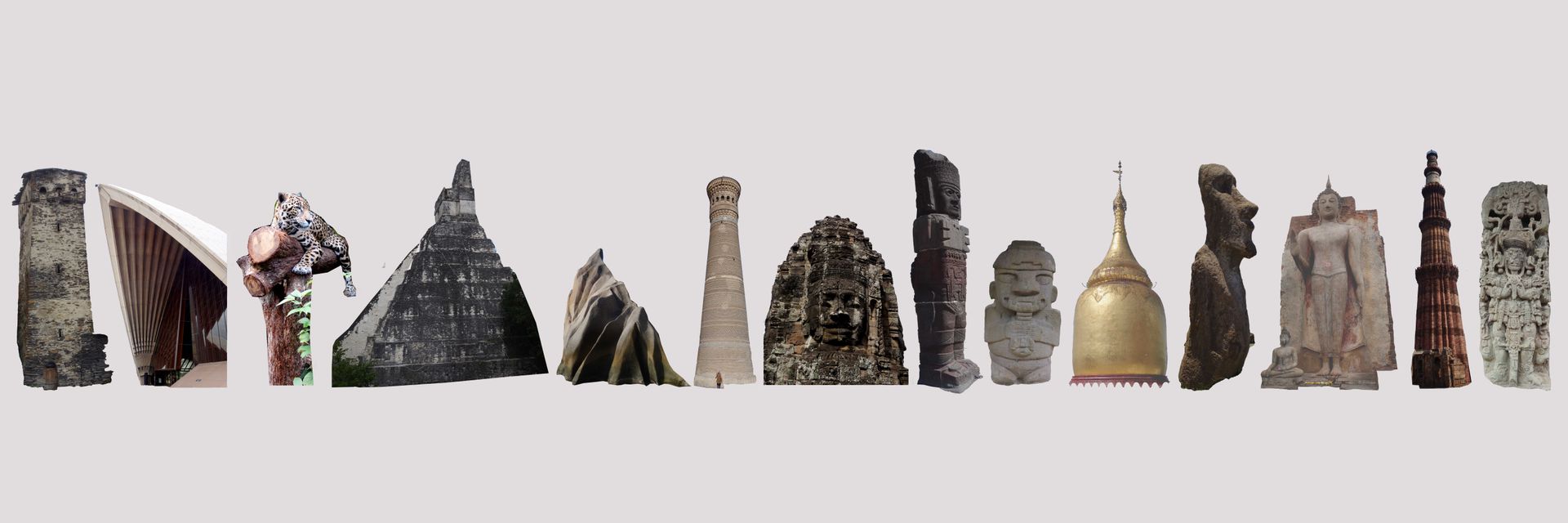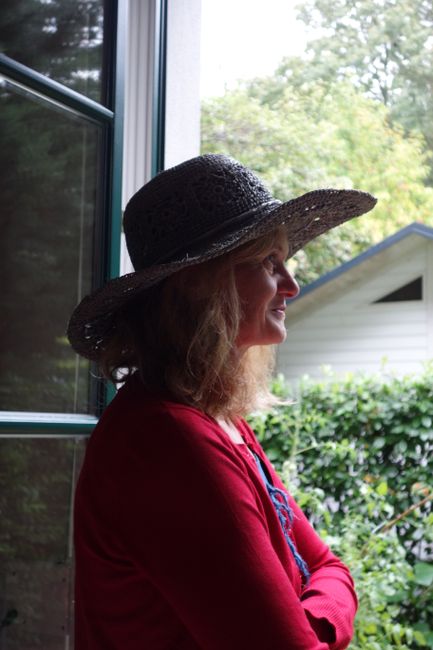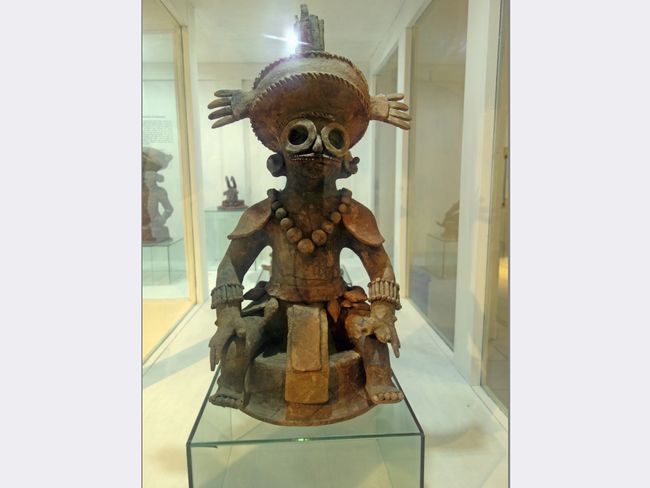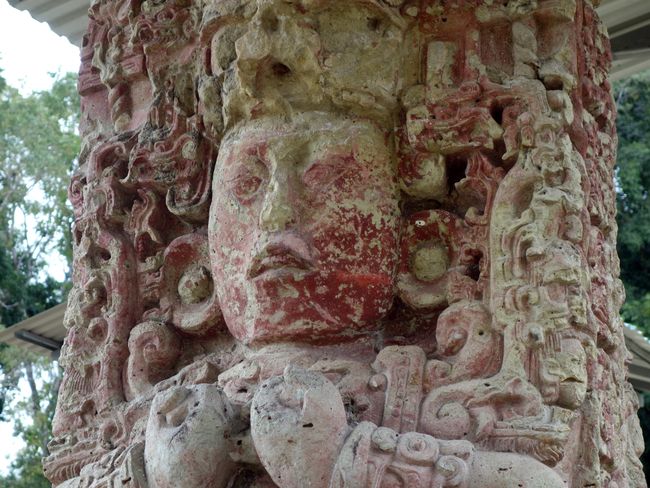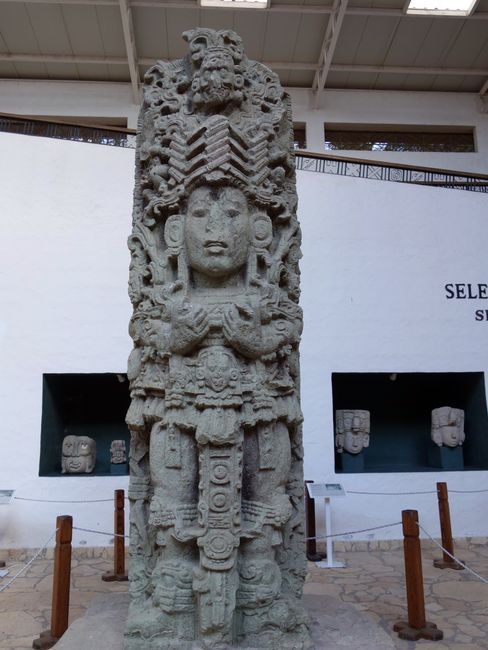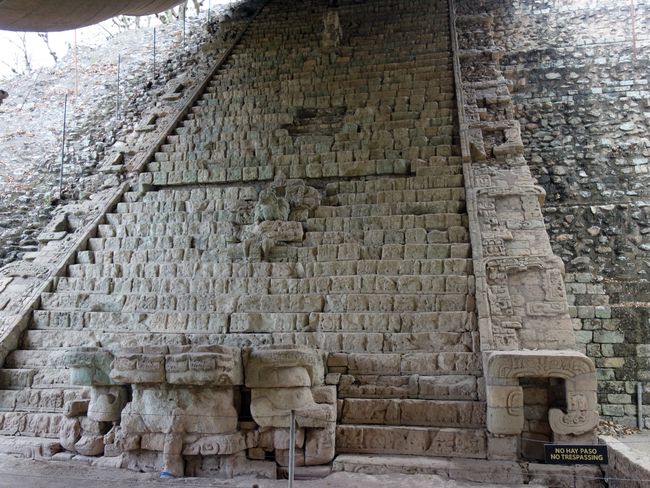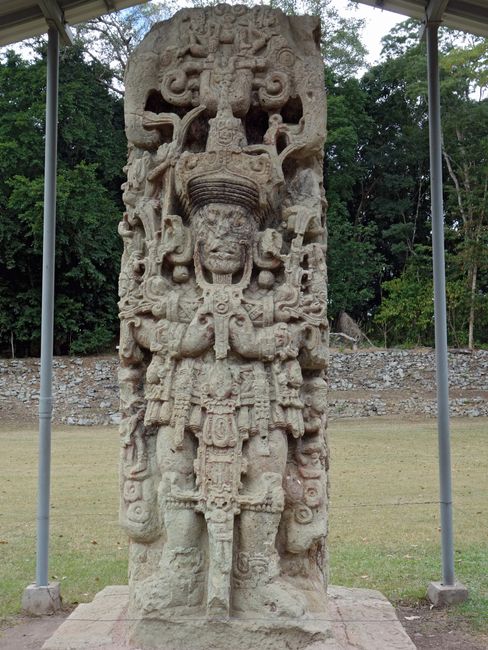Honduras - a Maya ruler wearing glasses
Cyhoeddwyd: 12.01.2019
Tanysgrifio i'r Cylchlythyr
Honduras is, as one reads, the second most dangerous country behind El Salvador, San Pedro Sula the most dangerous city in the world - measured in murders per year. But in Honduras there are also unique Maya sculptures, which on larger-than-life stelae depict the most important rulers of Copán, a city-state that was significant from 250 to 900. I actually did not want to go to Copán, the long journey through Guatemala and the dangers in Honduras spoke loudly against a visit. This time it was Roby who said: We have to go there.
Copán is located directly on the border with Guatemala, so I will describe the long and nerve-wracking journey there in the next blog post, in which I say goodbye to Guatemala - look forward to it ;-)
In Honduras, everything was different - better and much nicer - than expected. A large part of the stelae is absolutely outstanding: The rulers wear elaborate headdresses, large earrings and a voluminous belt adorned with various decorations. But the ruins among which the stelae stand are also well worth a visit. Especially a magnificent long staircase, decorated with the longest inscription of the Maya culture on the front of each step and seating six stone sculptures. By the way, the many stelae also bear hieroglyphs. That is why we know who the depicted individuals are and what they did during their reign.
It is also interesting that you can get a glimpse of the predecessors of the currently visible buildings. The Maya did not care much for monument protection and simply built over older buildings that had become unfashionable after a relatively short time. In Copán, you can climb into some of the tunnels that archaeologists have dug to explore these older temples. And so you can see well-preserved masks underground, some still with color (yes, not only the ancient Greeks, but also the Maya painted their temples brightly), which once adorned the older buildings.
Sculptures were Copán's great specialty: And so the buildings were also adorned with figures and reliefs - much more lushly than, for example, in Tikal, the famous Maya site in Guatemala, where everything is bigger, but also largely unadorned. This is also true, for example, for the enigmatic stone benches (beds?), which can be found everywhere in the tiny rooms of the residential and administrative buildings: in Tikal they are very plain, but in Copán they are adorned with fine reliefs.
I have a particular fondness for the pretty large incense burners made of clay, whose lids often take the form of people. My favorite is the depiction of the founding father of the great ruling dynasty of Copán: with huge round glasses that Dame Edna would have enjoyed.
To make it clear: Copán Ruinas, the town near the World Heritage Site, is a completely safe and therefore atypical oasis in impoverished Honduras, which is shaken by bloody gang wars elsewhere. Everything here is clean, the houses (including hotels) are nice and tastefully furnished, the food tastes good (significantly better than in Guatemala, although more or less everything here is based on corn, beans, avocados, and cheese), but above all the people are incredibly nice, relaxed, and cheerful (another huge difference from the neighboring country).
Tanysgrifio i'r Cylchlythyr
Ateb
